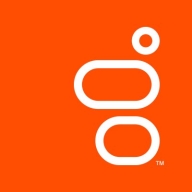

Teradata and Genesys Cloud CX are notable in the data warehousing and contact center software categories, respectively. Teradata holds an advantage with its impressive data handling capabilities and scalability, while Genesys Cloud CX stands out for its cloud-based approach and ease of use in contact centers.
Features: Teradata is renowned for its parallel processing architecture, offering powerful tools for query execution, scalability, and comprehensive security. Users highlight its ability to handle complex queries and its adaptability. On the other hand, Genesys Cloud CX excels with its cloud-centric approach, providing robust reporting capabilities, smooth integration with third-party apps, and support for omnichannel interactions.
Room for Improvement: Teradata needs to improve its cloud offerings, pricing flexibility, and capabilities in handling unstructured data. Users also seek better integration with other platforms and enhanced interfaces for administration. Conversely, Genesys Cloud CX is noted for needing better customization options, enriched reporting features, and improved integration with existing on-premise systems.
Ease of Deployment and Customer Service: Teradata supports multiple deployment options, including cloud and hybrid, though its technical support receives mixed reviews. Genesys Cloud CX is primarily cloud-based, offering straightforward deployment and highly-regarded customer service, especially for cloud-related support.
Pricing and ROI: Teradata, although expensive, provides significant performance benefits for large enterprises needing advanced analytics, with various pricing models, including flexible cloud options. Users report a positive ROI with improved service capabilities. Genesys Cloud CX offers a flexible pricing model advantageous for scaling, though the consensus is that it can be costly. Nevertheless, users find the investment justified by its comprehensive contact center features.
Genesys support is very good.
The technical support from Teradata is quite advanced.
Customer support is very good, rated eight out of ten under our essential agreement.
The scalability of Genesys is excellent.
The solution is considered scalable and receives a rating of seven on a scale of one to ten.
This expansion can occur without incurring downtime or taking systems offline.
Scalability is complex as you need to purchase a license and coordinate with Teradata for additional disk space and CPU.
Genesys is brilliant concerning stability.
I find the stability to be almost a ten out of ten.
The workload management and software maturity provide a reliable system.
There is room for improvement in the solution's pricing structure.
Their WFM product is still pretty immature.
Unlike SQL and Oracle, which have in-built replication capabilities, we don't have similar functionality with Teradata.
Overall it's affordable, as indicated by a pricing rating of four out of ten.
Genesys' licensing model is flexible, though not the cheapest.
Initially, it may seem expensive compared to similar cloud databases, however, it offers significant value in performance, stability, and overall output once in use.
Teradata is much more expensive than SQL, which is well-performed and cheaper.
The real-time analytics feature has impacted decision-making by providing visibility to service SLAs and understanding customer journeys.
The integration of CTI within the IT system is a particularly valuable feature.
The data mover is valuable over the last two years as it allows us to achieve data replication to our disaster recovery systems.


Genesys Cloud CX is a comprehensive customer experience platform that enables businesses to deliver exceptional service across all channels.
With its advanced features like omnichannel routing, AI-powered chatbots, and real-time analytics, it empowers organizations to provide personalized and efficient customer interactions.
Teradata is a scalable data analytics platform designed to meet enterprise demands for large-scale data management and processing, focusing on performance, scalability, and security for complex query executions.
As a leading data warehousing solution, Teradata integrates advanced analytics enabling organizations to derive insights from massive datasets. It supports high-volume data workloads with its architecture optimized for analytical queries. Users benefit from its robust scalability, allowing seamless expansion as data grows. Teradata's SQL engine is compatible with a wide range of data types, ensuring flexibility in data analysis. With advanced security measures, it protects sensitive data across various environments, providing peace of mind to users handling critical information.
What are the most important features of Teradata?Teradata is widely used in industries like finance, telecommunications, and healthcare, where data-driven decisions are critical. Companies leverage its robust analytics capabilities to enhance customer experiences, streamline operations, and ensure compliance with regulatory requirements. In these sectors, quick access to data insights can significantly impact competitive advantage.
We monitor all Customer Experience Management reviews to prevent fraudulent reviews and keep review quality high. We do not post reviews by company employees or direct competitors. We validate each review for authenticity via cross-reference with LinkedIn, and personal follow-up with the reviewer when necessary.